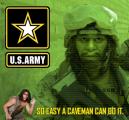Just as comanders are responsible for the climate in their units,
so the Army as an institution is responsible for the moral climate it fosters.
In this article, I will outline some of the contradictions and ambiguities
in Army regulations (ARs) and field manuals (FMs) that make it difficult for
leaders to understand the distinction between corrective training and punishment.
I will argue that ARs, case law, the Office of the Inspector General,
and higher-echelon commanders have, nonetheless, made it clear that such
a distinction exists and must be respected. Failure to recognize and respect
this distinction can and often does lead to illegal abuses of authority. These
abuses of authority within the Army’s ranks, and the cultural undercurrents
that condone these patterns of behavior, cripple efforts to wage an effective
counterinsurgency (COIN) campaign by fostering a mentality of paternalistic
tyranny rather than good stewardship. The moral implications of this mentality
are neither consistent nor compatible with counterinsurgency doctrine,
.....
.... an NCO who orders a Soldier to perform duties that are tantamount to punishment is giving an unlawful order.
...
My view is that commanders and NCOs are in some sense victims of a system that is highly resistant to change. I understand that it is difficult within the system to go against accepted cultural norms, but that is precisely why Army culture needs to be fundamentally changed and such changes subsequently supported at all levels.
There are three correlates with the assertions I have made thus far:
*The U.S. Army is culturally handicapped in its ability to occupy Iraq in a humane manner. The systemic acceptance of such illegal practices as “smoke
sessions” is part of a mind-set that has crippled our attempts to implement effective counterinsurgency campaigns.
*The regulations surrounding corrective training, punishment, and “smoke sessions” are confusing and need to be rewritten.
*The problem must first be fully understood by high-ranking officers. To this end, the Army ought to investigate this matter in a substantive way, and encourage Soldiers to candidly testify about these practices without fear of reprisal or prosecution.









 "A Sherman can give you a very nice... edge."- Oddball,
"A Sherman can give you a very nice... edge."- Oddball, 

 But that pretty much nails it.
But that pretty much nails it.

Bookmarks